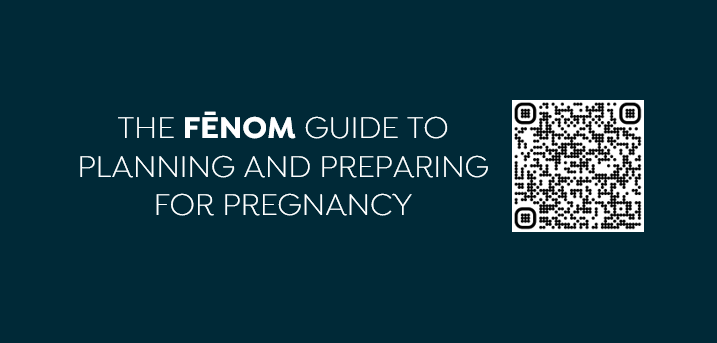The FĒNOM Guide to Planning and Preparing for Pregnancy
Embarking on the journey of motherhood is a life-changing experience. The FĒNOM Guide to Planning and Preparing for Pregnancy, written by our team of physicians, was created to support you every step of the way. This guide is packed with expert advice and practical tips to help you understand what to expect, how to prepare your body, mind, and environment for pregnancy, and how to optimize your health for this exciting journey. You can find the guide below or at this link.
HELPFUL Links:
Patient Portal and Hospital Pre-Registration:
Follow the buttons below to access the Patient Portal as well as the Baylor Hospital Pre-Registration.
General Information:
- https://www.acog.org/Patients
- menopause.org
- cdc.gov
- cordblood.com
- kellymom.com
- S. Preventive Services Task Force (USPTF)
- HPV Questionnaire PDF
- Progesterone Therapy PDF
Frequently Asked Questions
Answers to many questions can be found in our FENOM guide to pregnancy.
Q: How can I prepare for my visit to FĒNOM?
When scheduling an appointment, please let us know how we can best serve you. Whether it’s an annual exam, consultation for a new problem, or seeing a particular specialist, we’re here to assist. Be ready to provide us with a list of your current medications, your complete health history, and any previous medical records if you’re transitioning from a different healthcare provider. You’re also encouraged to come with any questions or concerns you have about your health.
Q: What is the procedure during the visit?
Your visit will likely consist of a physical examination conducted by your physician. If you feel uncomfortable with any aspect of the examination, please let your physician know. If you have any concerns regarding modesty, we are here to address them. We aim to make you as comfortable and empowered as possible.
Q: What should I do after my visit?
If your physician diagnosed a condition during your appointment, we encourage you to learn as much about it as possible. Research the treatment options and don’t hesitate to contact us if your condition doesn’t improve or if you develop any new problems.
Q: What is an Annual Well-Woman Exam?
An Annual Well-Woman exam is an evaluation of the female body as well as the mind and lifestyle. It includes discussions on birth control options, cancer screening, vaccinations, depression screening, sexually transmitted infections screening, and menstrual period problems, among others.
Q: When should a first gynecological visit occur and what can be expected?
We recommend that girls have their first gynecologic visit somewhere between the ages of thirteen and fifteen years. This first appointment could simply be a conversation between you, your daughter and your doctor. Your physician will likely ask questions about your daughter’s menstrual period or potential sexual activities. These questions might seem personal to your daughter, which is why you might have her consider these questions before the appointment.
We will likely perform a general physical exam as well as an external genital exam to access your daughter’s health. We generally do not perform a pelvic exam during this visit unless your daughter is experiencing certain symptoms such as uncommon pain or bleeding. If sexually active, we offer tests for a number of sexually transmitted infections (STIs).
Q: When should I consider having an infertility evaluation?
You might consider an infertility evaluation if you experience any of the following:
- After having one year of regular sexual intercourse without the use of birth control, you have not become pregnant.
- You are over 35 years of age and have been unable to become pregnant after six months sex without birth control.
- You experience an irregular menstrual cycle
- Either you or your partner experience a known fertility issue.
Q: What are common symptoms of menopause?
- Periods end: The most common symptom of menopause is the natural stopping of menstrual periods. Women, on average, tend to enter menopause at 51 years of age.
- Hot flashes: Menopausal women experience hot flashes to varying degrees. A hot flash is a surge of heat which races to the upper body and face. Some women experience these flashes several times a month while others can experience them many times in a single day.
- Sleep Issues: Menopause can often cause insomnia, as well as night sweats and an inability to stay asleep.
- Vaginal Dryness and Infections: Due to decreased productions of estrogen, menopausal women can experience vaginal dryness as well as increased occurrence of vaginal infections.
Q: Should I get a hysterectomy?
A hysterectomy can be performed to treat a variety of women’s health issues, such as:
- Uterine fibroids
- Abnormal uterine bleeding
- Endometriosis
- Gynecologic cancer
- Pelvic support problems
- Chronic pelvic pain
Q: Do you have a list of some safe medications to use during pregnancy?
For answers to this and numerous other pregnancy-related questions, check out our FENOM guide to pregnancy.
